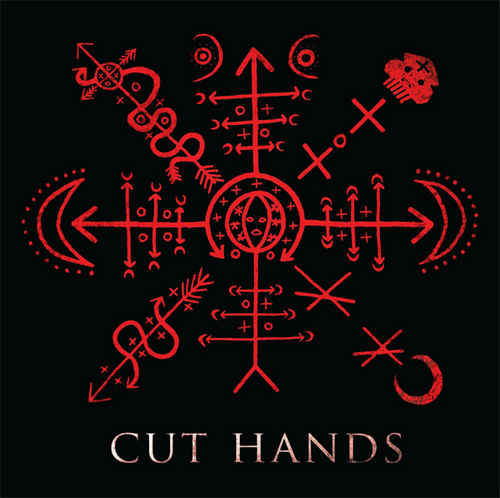Black Mamba seems to almost be defying those people who find William Bennett’s Cut Hands project unpalatable to say he’s only interested in provocation and discomfort through sound. If anything, Bennett sounds almost sensitive across these twelve tracks. If you’re a noise fan, this may not be a good thing, but this is Cut Hands, and there’s always more to Bennett’s music than first impressions. It just depends on how those first impressions percolate through the experience of listening to Black Mamba.
The title of Cut Hands’ last album, Afro Noise Vol.1 highlighted Bennett’s background as much as it did the new directions he was forging. The abrasive percussion was certainly inspired by African and Haitian rhythms, but they were saturated to the extreme, transformed into a brutal form of techno that had its roots in Whitehouse’s power electronics assault. Not to mention the visuals he deploys at concerts: unsettling footage of colonial times and rituals, all designed to play on his audience’s preconceptions and (dare I say it?) prejudices by remaining resolutely ambiguous. Smart but unflinching, Cut Hands seemed to prolong, rather than divert from, Whitehouse’s equally blunt explorations of themes of rape and murder, albeit more subtly.
Black Mamba, on the other hand, takes its name from a poisonous snake, and, like a snake, this second album is coiled, ready to strike, full of tension, but without the release of violence that characterised Afro Noise. In fact, certain tracks are positively mellow, and, from the brief opener ‘Witness The Spread of the Dream’, with its Vangelis-esque synth and robotic spoken-word lyrics, there is an element of sci-fi sensitivity about this album, the same sort that dominated the best eighties synth-based music, from Cabaret Voltaire to the early Human League albums. The more acute presence of synths opens up Cut Hands’ music, creating a futuristic canvas that widens the scope of Bennett’s beats, pulses and thunders. In fact, come the dreamy, hazy ‘El Palo Mayombe’ and ’54 Needles’, the stretched ambience starts to feel a lot closer to the atmospheres of actual African music than any of the rough and tumble of his abrasive percussive salvos, suggesting wide-open vistas and beautifully wild landscapes. Elsewhere, such as on ‘Brown-Brown’, his percussion is more minimal and stripped down than expected, the connection to mysterious pre-European rites and rituals more openly courted. It’s an intriguing direction for Bennett to take, but I’m not sure it’s one many of his hardcore fans will appreciate.
Rest assured, noise fans, however, because this coiled reptile of a record does still strike, albeit less frequently than Afro Noise Vol. 1. The title track is possibly Bennett’s finest achievement to date under the Cut Hands guise, a throbbing, angry, pulsating mass of brittle rhythm that shifts in velocity with belligerent force, with similar metallic stridency to ‘Stabbers Conspiracy’ off his last record, only with greater, and more exciting, variation in the tempos. ‘No Spare No Soul’, meanwhile, features lurching, scratch-like synth that wouldn’t feel out of place on a drum & bass or jungle record. Bennett has slowed down the pace across Black Mamba, but when he goes for the attack, he’s definitely aiming for the jugular.
Black Mamba in many ways suffers in comparison to its exalted predecessor. It’s less abrasive, more considered, and that’s bound to rankle with more than a few power electronics fans, this writer included. Maybe it’s Bennett shying away from the – in my opinion overstated – "controversy" of his debut, although I doubt it. More likely it’s just a case of expanding the horizons of what Cut Hands means and represents, and for that I salute him. It would be great to see these tracks fleshed out in a live setting (one that’s not a club, it must be said). Until then, whilst there’s loads to enjoy on Black Mamba (seriously, the title track is a fucking killer), I currently find myself returning to Afro Noise with more enthusiasm.


